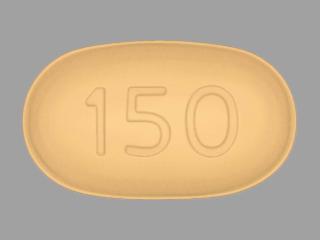Solriamfetol Dosage
Medically reviewed by Drugs.com. Last updated on Jul 1, 2025.
Applies to the following strengths: 75 mg; 150 mg
Usual Adult Dose for:
Additional dosage information:
Usual Adult Dose for Narcolepsy
Initial dose: 75 mg orally once a day upon awakening
- Dose may be doubled after 3 days based on efficacy and tolerability
Maximum dose: 150 mg/day
Comments:
- Doses above 150 mg/day have not been shown to increase effectiveness enough to outweigh dose-related adverse reactions.
- Avoid taking within 9 hours of planned bedtime because of the potential to interfere with sleep if taken too late in the day.
Use: To improve wakefulness in patients with excessive daytime sleepiness associated with narcolepsy.
Usual Adult Dose for Obstructive Sleep Apnea/Hypopnea Syndrome
Initial dose: 37.5 mg orally once a day upon awakening
- Dose may be doubled at intervals of 3 days based on efficacy and tolerability
Maximum dose: 150 mg/day
Comments:
- This drug does not treat the underlying airway obstruction in obstructive sleep apnea (OSA).
- Prior to initiating therapy, patients should have their underlying airway obstruction treated (e.g. with continuous positive airway pressure) for at least 1 month and should continue treatment while taking this drug.
- Doses above 150 mg/day have not been shown to increase effectiveness enough to outweigh dose-related adverse reactions.
- Avoid taking within 9 hours of planned bedtime because of the potential to interfere with sleep if taken too late in the day.
Use: To improve wakefulness in patients with excessive daytime sleepiness associated with OSA.
Renal Dose Adjustments
Mild Renal Dysfunction (eGFR 60 to 89 mL/min/1.73 m2): No adjustment recommended
Moderate Renal Dysfunction (eGFR 30 to 59 mL/min/1.73 m2): Initial dose: 37.5 mg orally once a day; dose may be increased to 75 mg once a day after 7 days based on efficacy and tolerability; Maximum dose: 75 mg/day
Severe Renal Dysfunction (eGFR 15 to less than 30 mL/min/1.73 m2): 37.5 mg orally once a day; Maximum dose: 37.5 mg/day
ESRD (eGFR less than 15 mL/min/1.73 m2): Not recommended
Liver Dose Adjustments
No adjustment recommended
Precautions
CONTRAINDICATIONS:
- Concomitant use with monoamine oxidase (MAO) inhibitors, or within 14 days following discontinuation of MAOI because of the risk of hypertensive reaction
Safety and efficacy have not been established in patients younger than 18 years.
Consult WARNINGS section for additional precautions.
US Controlled Substance: Schedule IV
Dialysis
Data not available
Other Comments
Administration advice:
- Take orally upon awakening with or without food
- Avoid taking within 9 hours of bedtime because of the potential to interfere with sleep
Preparation techniques:
- The 75 mg tablets are scored and can be split in half at the score line to provide the 37.5 mg dose
General:
- Ensure blood pressure is adequately controlled prior to starting therapy.
- This drug has the potential for abuse; carefully evaluate patients for a recent history of drug abuse, especially stimulant or alcohol abuse; monitor for signs of misuse or abuse.
Monitoring:
- Blood pressure and heart rate should be monitored regularly
- Monitor for psychiatric adverse reactions
- Monitor for signs of misuse or abuse
Patient advice:
- Patients should be instructed to read the US FDA-approved patient labeling (Medication Guide).
- Patients should understand that this drug has the potential to be abused; instruct patients to store this medication in a secure place and dispose of properly when no longer needed.
- Patients with obstructive sleep apnea should understand that this drug does not treat their airway obstruction and they should continue to treat their airway obstruction.
- Patients should be instructed to report new or exacerbated psychiatric adverse reactions.
- Patients should be speak to their healthcare provide if the are pregnant or planning to become pregnant, or breastfeeding.
Frequently asked questions
- How do I know if I have sleep apnea? The warning signs
- Is sleep apnea the hidden cause of your high blood pressure?
- Is Sunosi (solriamfetol) a controlled substance?
More about solriamfetol
- Check interactions
- Compare alternatives
- Reviews (85)
- Side effects
- During pregnancy
- Drug class: miscellaneous central nervous system agents
- Breastfeeding
- En español
Patient resources
Other brands
Professional resources
Other brands
Related treatment guides
See also:
Further information
Always consult your healthcare provider to ensure the information displayed on this page applies to your personal circumstances.


